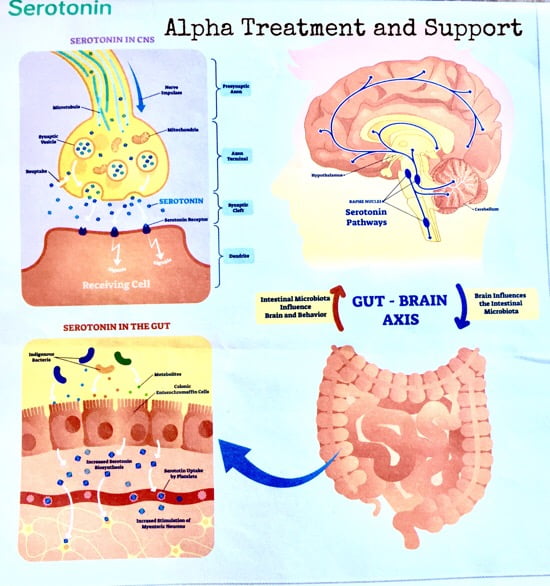Gut instinct
Remember in grade 7 science class, connecting wires to a battery and creating a circuit to make a light bulb shine? Same thing happens in your body. Except human neurocircuitry is so complex and diverse that it’s taken years for scientists to figure out how we actually tick. Turns out we’re far more complicated than anybody could have predicted.
Our superb brain has always been given top priority for housing our thoughts and feelings and our response to the world around us. If a person struggles to control these thoughts and feelings, such as in depression and anxiety, traditional medicine treatments have focused more on manipulating the chemistry of the brain through medicine to help reorganise our habits of thought and give us a greater level of control over happiness and joy.
Humanity’s clever scientists have now revealed that feeling good has many more variables than we once thought. What’s even more exciting is that we are more in control of stimulating those good vibes by making some lifestyle changes – in particular ones that influence our digestive systems.
As if one brain is not enough, our masterful bodies have given us, would you believe, a “second brain” to contend with.

There is a network of nerves known as the enteric nervous system that makes up a portion within our digestive system that is now being termed our second brain. It has always been said that the way to a man’s heart is through his stomach, well that old wives tale might have more truth to it than previously thought. But, before you reach for that chocolate covered donut the temporary joyous high, let’s discover the marvels of our digestive system and our mental wellbeing.

It’s OK if you need medicine.
Be kind, some people need to take prescribed medication in order to treat anxiety and depression, and that OK. They are not loopy, coo-coo or mental, their bodies just need a little extra help to get to a state where they can function positively in their lives.
If you suspect that you need medical intervention:
Seek out the guidance and care of a medical professional who specialises in mental health.
Do not self-diagnose or self-medicate. This can be very dangerous.
Whether you are taking prescribed medicine or not, look after your gut and make healthy whole-food choices, exercise, socialise (everybody needs community and fellowship) and take in some fresh air. If you need help with this, you can seek out a complementary healthcare practitioner.

